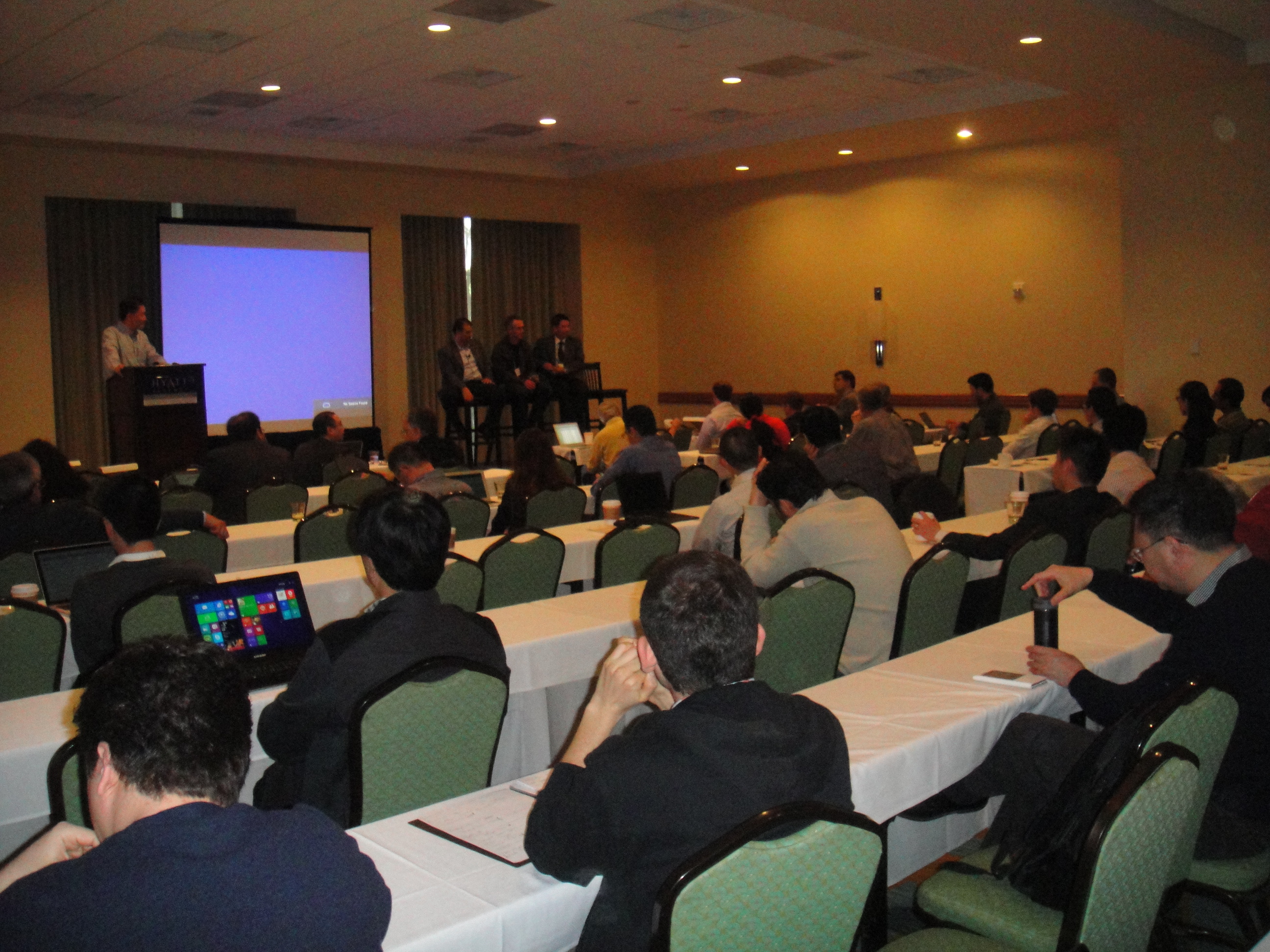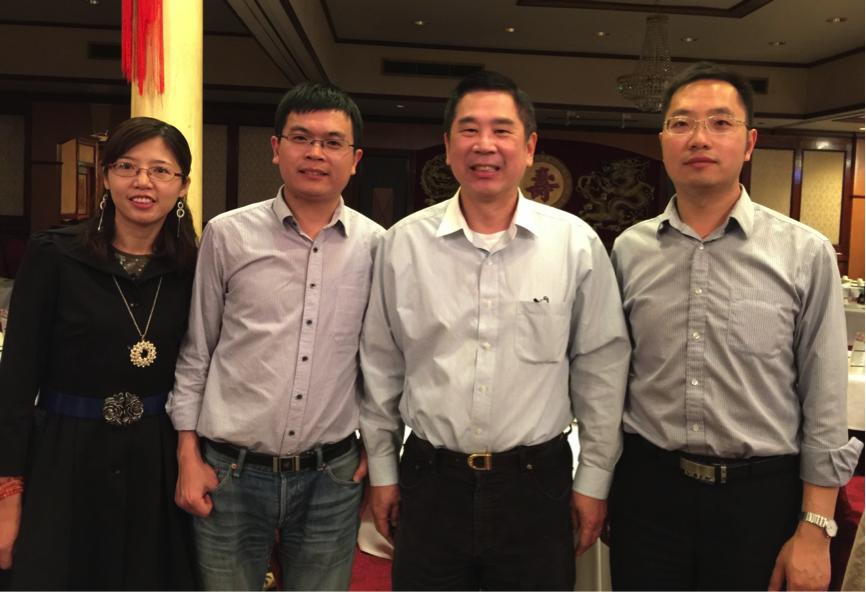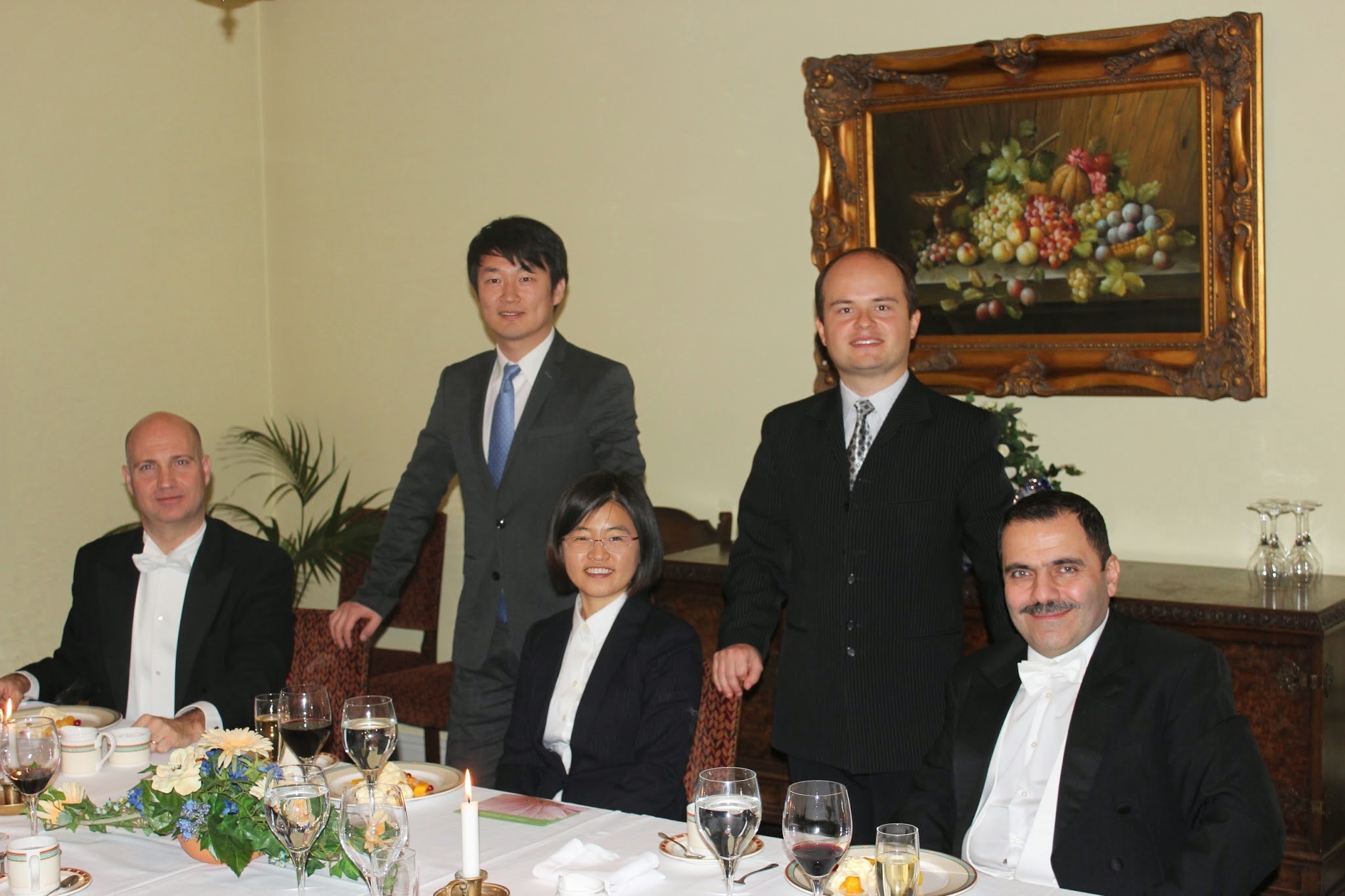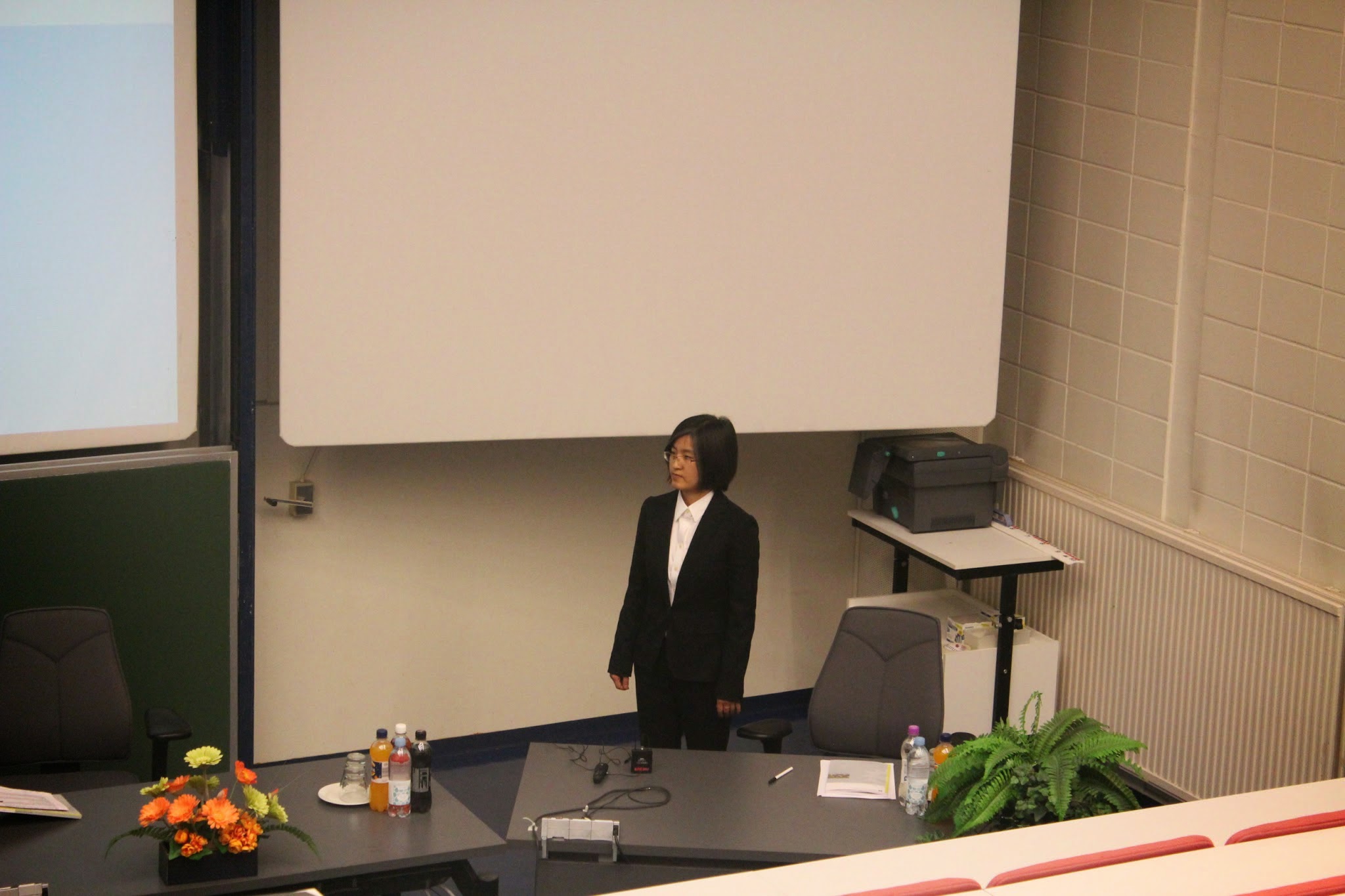Professor Kuo Discussed Challenges and Opportunities in Computing and Communications on Big Data at ICNC 2015
MCL Director, Professor C.-C. Jay Kuo, was invited to be a speaker and panelist in the Innovation Theme session “Big Data: Challenges and Opportunities in Computing and Communications” of the IEEE International Conference on Networking and Communications (ICNC), held in Anaheim, California, February 16-19, 2015. ICNC 2015 was technically co-sponsored by IEEE Computer Society and IEEE Communications Society, financially sponsored by Technology Innovation Association. It is alternately held in Hawaii and California every year.
Professor Kuo pointed out two main challenges in big data – the filtering problem and the prediction problem. The filtering problem refers to how to find useful and relevant information from a huge amount of data. Although data is in huge amount, the information of interest is little. A lot of noise exists and buries the important information. Professor Kuo used “finding a needle in a haystack” as an analogy. One immediate scientific method to address this problem is to develop a more advanced search engine for image/video exploiting computer vision techniques. The prediction problem asked how to predict future trends, for instance, to predict the explosion of a large flu or the results of political elections, based on existing data. Professor Kuo emphasized that we need to find out “does big data truly help increase prediction accuracy or does it in fact confuse people with noise”.
In addition, Professor Kuo, in his speech, addressed one challenge in big visual data communication, that is, the broadband video is too expensive to be transmitted in a massive distributed manner. He proposed an alternative, which is to exploit “semantic compression” where the computer vision technology can be used to tag video contents so that, instead of sending video, only meta data such as tags [...]








